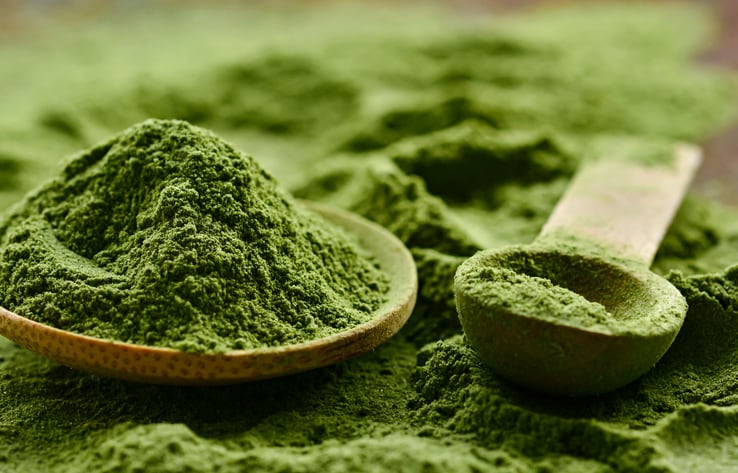While other species of algae have been used as dietary nutraceuticals, the benefits of consuming Chlamydomonas reinhardtii were previously unexplored. Therefore researchers from the University of California, UC San Diego's School of Medicine and Jacobs School of Engineering and Center for Microbiome Innovation, decided to test the effect of consumption of the species on humans with and without symptoms of IBS.
Published in the Journal of Functional Foods, the results showed that participants who had suffered from a history of frequent gastrointestinal symptoms reported significantly less bowel discomfort and diarrhea, significantly less gas or bloating and more regular bowel movements.
The paper concludes: "The addition of C. reinhardtii into the diet will not only add nutritional value but may also function to relieve some gastrointestinal symptoms of certain individuals."
Principal investigator and algae expert Stephen Mayfield, a distinguished professor in UC San Diego's Division of Biological Sciences, said: "People have been looking at this algae for decades, but this is the first study to show what many of us have suspected--it's good for you.
"This is exciting because it demonstrates a clear benefit: If you have IBS-like symptoms, this is good for you."
Study
The C. reinhardtii used in the study was grown by the San Diego startup Triton Algae Innovations and was subject to rigorous safety testing and designated GRAS by the US Food and Drug Administration.
Participants consumed daily spoonfuls of powdered C. reinhardtii biomass and reported their gastrointestinal health for one month.
Although more than 200 participants joined the project, data from just 51 volunteers met the study's requirements for inclusion in the final data analyses.
Participants were asked a series of questions to quantify their gastrointestinal health both before and during the consumption of C. reinhardtii. In response to the question “how frequently did you have bowel discomfort or diarrhoea,” the most common response in total from all the LowGIS participants before consuming algae was “rarely,” while during algae consumption it shifted towards “never”.
In the HighGIS groups, participants reported experiencing bowel discomfort or diarrhea “often” or “sometimes” but this changed significantly during algae consumption, shifting the majority of responses to “rarely”.
Participants were also asked to quantify the frequency and classification of their bowel movements before and during the study. The majority of all participants in the study reported having between 1 and 2 bowel movements each day both before and during algae consumption. While no significant changes were observed within any group for this question, the bowel movements of HighGIS individuals did occur more regularly during algae consumption.
The report concludes: "These results suggest that C. reinhardtii biomass can act as a functional ingredient to reduce the frequency of bowel discomfort and diarrhea in symptomatic humans."
In response to the question “how frequently did you have bloating or gas,” all the HighGIS groups reported having bloating or gas ranging between “sometimes” and “always” before consuming algae. This group again shifted significantly during the study with the majority reporting “rarely” by the end.
Frank Fields, a research scientist in Mayfield's lab and lead author of the paper, said: "The benefits of consuming this species of algae were immediately obvious when examining the data from both mice and humans who suffered from gastrointestinal symptoms.
"I hope that this study helps de-stigmatise the thought of incorporating algae and algae-based products into your diet - it is a fantastic source of nutrition and we have now shown that this species of algae has additional benefits to animal and human health."
Volunteers were also provided with stool sampling kits and sent samples to the American Gut Project, a citizen science effort led by Knight and his lab, to assess any changes in their microbiomes. The results indicated that the gut microbiome composition remained diverse, which is typical of healthier individuals, and that no significant changes to the composition of their gut microbiome occurred during the study as a result of consuming the algae.
The researchers say much more testing with larger groups of participants across longer time periods is needed. At this point, they are unclear about how the algae works to improve gastrointestinal health. The scientists believe the benefits could be traced to a bioactive molecule in algae or perhaps a change in gene expression of gut bacteria caused by algae consumption.
Source: Journal of Functional Foods
Fields. F. J., et al
"Effects of the microalgae Chlamydomonas on gastrointestinal health"


